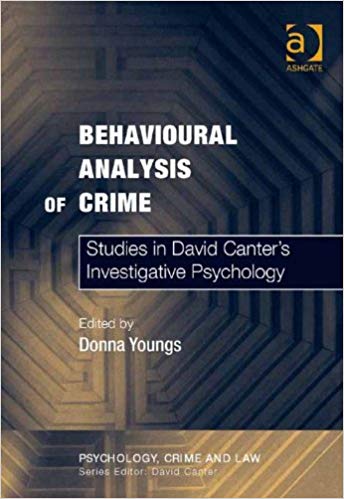The intense interest in 'offender profiling' generated by FBI special agents, gave rise to an explosion of studies in a new area called ’investigative psychology’ by its originator David Canter. This develops understanding of offenders' behaviour that can be harnessed to improve investigations. In this rapidly developing area much has been learnt about what offenders reveal about themselves through their styles of offending. Beyond criminals’ actions the location of their crimes can also reveal where the offender lives or which offences can be linked as part of the same series. Investigative psychologists also explore how to interview witnesses and suspects and assess the veracity of accounts given. The variation in criminal style across crimes as diverse as arson, burglary, hostage negotiation, serial killing and sexual assault is reviewed, using narrative theory and criminals’ emotional experience when offending as the basis for explaining these variations. This provides a framework for drawing inferences about offenders' characteristics. Studies in investigative psychology require a special methodology, developed by David Canter to allow scientific explorations in such a challenging field, previously assumed not to be open empirical study. The practical potential and applications of the research are given, as well as a selection of commentaries on the cutting edge debates that are driving the future of the investigative psychology. This new discipline is of relevance to forensic psychologists in many different settings, criminologists and law enforcement agencies, bringing together work that lays out current achievements and sets the agenda for future research in the field.
چکیده فارسی
علاقه شدید به «پروفایل مجرمان» که توسط مأموران ویژه FBI ایجاد شد، منجر به انفجاری از مطالعات در حوزه جدیدی به نام «روانشناسی تحقیقی» توسط دیوید کانتر شد. این درک رفتار مجرمان را توسعه می دهد که می تواند برای بهبود تحقیقات مورد استفاده قرار گیرد. در این حوزه که به سرعت در حال توسعه است، چیزهای زیادی در مورد آنچه که مجرمان از طریق سبک های توهین آمیزشان درباره خود آشکار می کنند، آموخته شده است. فراتر از اقدامات مجرمان، محل جنایت آنها همچنین می تواند محل زندگی مجرم یا اینکه کدام جرایم می تواند به عنوان بخشی از همان سریال مرتبط باشد را نشان دهد. روانشناسان تحقیقی همچنین چگونگی مصاحبه با شاهدان و مظنونان و ارزیابی صحت گزارش های داده شده را بررسی می کنند. تنوع در سبک جنایی در جرایم مختلف مانند آتشسوزی، دزدی، مذاکره با گروگان، قتل سریالی و تجاوز جنسی با استفاده از نظریه روایت و تجربه عاطفی جنایتکاران هنگام توهین به عنوان مبنایی برای توضیح این تغییرات بررسی شده است. این چارچوبی برای استنتاج درباره ویژگی های مجرمان فراهم می کند. مطالعات در روانشناسی تحقیقی نیازمند یک روش شناسی خاص است که توسط دیوید کانتر توسعه یافته است تا امکان کاوش های علمی در چنین زمینه چالش برانگیزی را فراهم کند که قبلاً فرض می شد مطالعه تجربی باز نیست. پتانسیل عملی و کاربردهای این تحقیق و همچنین مجموعهای از نظرات در مورد بحثهای پیشرو که آینده روانشناسی تحقیقی را هدایت میکنند، ارائه شده است. این رشته جدید برای روانشناسان قانونی در بسیاری از محیطهای مختلف، جرمشناسان و سازمانهای مجری قانون مرتبط است، و کارهایی را گرد هم میآورد که دستاوردهای فعلی را نشان میدهد و دستور کار تحقیقات آینده در این زمینه را تعیین میکند.
ادامه ...
بستن ...
Ebook details:
عنوان: Behavioural Analysis of Crime Studies in David Canter's Investigative Psychology (Psychology, Crime and Law) (9780754626220)
نویسنده: Donna Youngs
ناشر: Routledge; 1 edition (October 24, 2013)
زبان: English
شابک: 0754626229, 978-0754626220
حجم: 6 Mb
فرمت: True Pdf
ادامه ...
بستن ...










